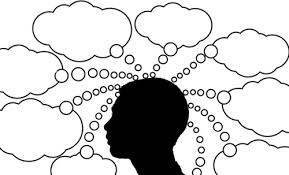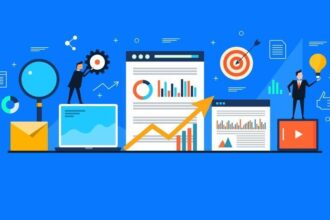 Our grandchildren will know of the sins we committed — and they won’t learn of them through our fabled stories or in a history book that shines positive light on what were invariably bad acts. Our grandchildren will know truth, not by a fact checkers’ findings, but via their own. The digital world will be for our grandchildren what the Internet was supposed to be for us: the world’s biggest reference library.
Our grandchildren will know of the sins we committed — and they won’t learn of them through our fabled stories or in a history book that shines positive light on what were invariably bad acts. Our grandchildren will know truth, not by a fact checkers’ findings, but via their own. The digital world will be for our grandchildren what the Internet was supposed to be for us: the world’s biggest reference library.
 Our grandchildren will know of the sins we committed — and they won’t learn of them through our fabled stories or in a history book that shines positive light on what were invariably bad acts. Our grandchildren will know truth, not by a fact checkers’ findings, but via their own. The digital world will be for our grandchildren what the Internet was supposed to be for us: the world’s biggest reference library.
Our grandchildren will know of the sins we committed — and they won’t learn of them through our fabled stories or in a history book that shines positive light on what were invariably bad acts. Our grandchildren will know truth, not by a fact checkers’ findings, but via their own. The digital world will be for our grandchildren what the Internet was supposed to be for us: the world’s biggest reference library.
The only difference? They will have the capabilities of sorting through, analyzing and taking away the most crucial evidence, information and guidance in a way we could never imagine. How? Our grandchildren will use big data queries to determine the truths of the world, and they’ll do it before their morning coffee.
This isn’t merely big data hype, though the term itself has certainly received its fair share of accolades. After all, it’s changing the finance, healthcare and journalism industries from the inside out. In theory, it’s changing the world — though it isn’t without its setbacks.
Google Flu Trends was the big data fail heard ’round the world. Mere mention of the NSA sparks privacy debates throughout the country. Target’s customer data breach, as well as the Heartbleed bug in general, put even those generally unconcerned with big data on the edge of their seats.
But big data is in its infancy — and those setbacks are mere tumbles. The industry’s future is much more promising, though it may take our grandchildren to fully realize its potential. See, big data analyses require a shift in conventional thinking, the same way optimizing the world wide web for information discovery required a shift in organizational thinking.
As big data becomes the way of the world, and the Internet of Things (IoT) becomes a reality, collaboration across business functions and even across varying degrees of your personal community will be essential. True data-driven decisions are holistic in their execution — and for most of us today, our lives are a series of singular decisions made most often amongst our inner-self. This is even more true within businesses, where teams often work wholly separate from one another.
In the IoT way of life, in which your toothbrush immediately reads and reports back on your oral health or in which a sidewalk realizes you are lost and provides directions, everyday tasks will take on a new role. Our understandings of our daily lives will dramatically alter — and that will translate to the office as well.
But for big data and IoT to be utilized as efficiently as so many blog posts and great minds theorize it one day will be (us here at Umbel included), there will need to be a culture change from our baseline autonomy and linear assumptions to a holistic approach based most often on comprehensive conclusions. Those comprehensive conclusions will be provided by the data — but the holistic approach will take a new age culture to implement.
In this future, there is no data management platform geared toward one department. There is no CRM only a few use. Instead, there is a company’s first-party data, collected, secured and visualized, for an entire business, from the executives to the interns, giving everyone the power of inference and, ultimately, ROI.










